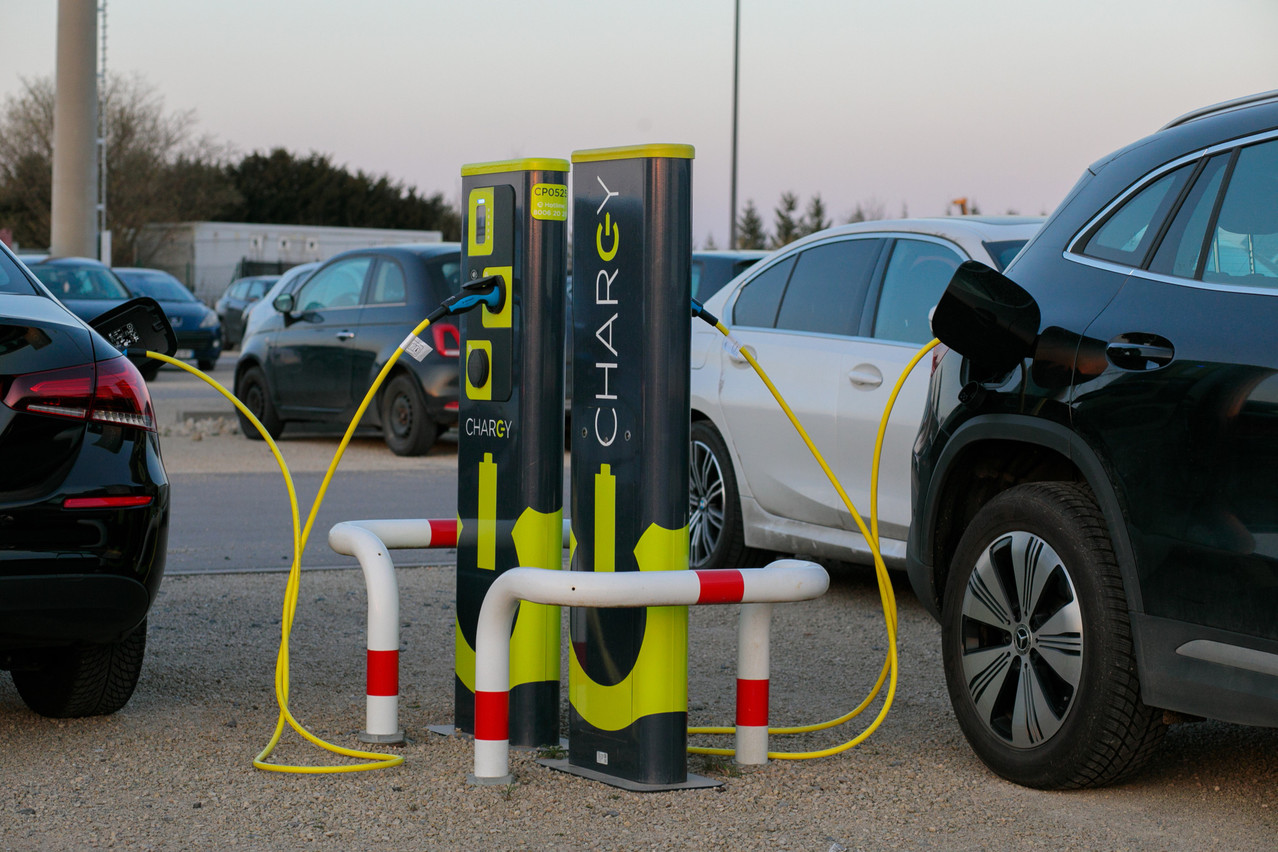For sale: public electric recharging infrastructure that has seen little use. Make an offer to the Luxembourg government. Minimum price: €11.5m to buy the infrastructure and €80m to operate it for the next seven years from 1 July.
This is not a new issue: Luxembourg needs to move away from “its” electric recharging platform to comply with EU regulations. Claude Turmes (déi Greng), then energy minister, got the answer he wanted: following a public enquiry conducted between late October 2021 and mid-January 2022, there was at least one operator who met all the conditions and offered a ‘reasonable’ price--in 2021--out of the 11 applications submitted, the four responses received by the ministry and the three eligible applications. One is not a lot, but only one is needed to pay €11.5m to buy the infrastructure and €80m to operate, develop and maintain it for seven years. The two public contracts are linked, and it will be up to the specialist firm Schwartz & Co, which had already been asked by the authorities to work on the design of this infrastructure prior to its launch in 2017, to assess the seriousness of the bid(s).
At €11.5m, the platform would be sold at a loss. According to the economy ministry, the subsidies awarded to the infrastructure to date amount to €15m. The ministry adds that, although just over €10m had been paid to the five managers of the Chargy network (Creos, Sudstroum, Ville de Diekirch, Ville d’Ettelbruck and Hoffmann Frères) by 30 October, this amount does not include the charging points installed in 2024, or even all the charging points installed in 2023.
A high-speed market
With a further €80m to operate it for seven years, the exercise seems perilous. The operator will have to maintain and develop the infrastructure and buy electricity (or produce it) and sell it to users to generate a margin. At the end of 2023, the latest official figures available, Chargy had 642 charging stations (each one with two charging points) out of the 800 envisaged at the start of the project, plus 519 communal charging points. 11,508 MWH had been consumed. And as no one wants to say anything on the subject, we've recalculated what that might represent on the basis of the available tariffs: from €5.64m to €7.25m. That’s barely half of what it would take to make the entry ticket profitable.
But two other factors need to be taken into account. First, updating the number of terminals at the end of 2024 and annual consumption should change the analysis. If we look only at 2021, after the lockdown in 2020, consumption increased by 267% in 2021 compared with the previous year, by 100% in 2022 and by 50% in 2023.
Second, the market is very dynamic and is attracting a great deal of interest... despite rising energy prices. According to the tariffs available online, Tesla has increased its tariffs to €0.52/KWH during off-peak hours and to €0.58/KWH between 4pm and 10pm; Sudstroum has raised its tariffs to €0.48 and €0.62 for its ‘energy’ customers and to €0.52 and €0.67 for the others; Enovos to €0.49 for customers with a Chargy card and €0.55 for the others, to 0.63 for ‘Super Chargy’ customers and to €0.63 for the others... and the home tariff is around €0.20/KWh. In other words, the brave Chargy operator will have to have an easy infrastructure, available and at the right rate to attract customers.
26 times more electric or hybrid vehicles
Finally, the addressable market has also exploded since the platform came into being: in Luxembourg, the number of electric or hybrid cars has risen from 3,472 in January 2017 to almost 91,000 in January 2025. More than a third of these vehicles are ‘only’ electric and therefore need to be recharged regularly, although not everyone can afford to have a home recharging facility.
So there’s a market to be won.
Of the companies that we contacted to find out if they were interested, only Electra responded with a cautious “yes, we have that on the radar.” Electra’s CEO and co-founder Aurélien de Meaux was elected co-chairman of the Automotive Services branch of the . The company raised €304m in January 2024, or more than €600m in total, to become one of the largest recharging networks in Europe.
Coincidentally, it will be inaugurating its first charging point in Luxembourg, at the Capellen shopping centre in Mamer on Wednesday. Luxembourg is the ninth country in which Electra has set up operations, after Belgium, the Netherlands, France, Germany, Spain, Italy, Switzerland and Austria. In total, Electra operates 423 stations in these countries, representing 2,482 charging points. And it plans to invest €20m in Luxembourg for “several recharging stations.”
Candidates have until 19 March to submit their applications for Chargy.
This article was originally published in .
